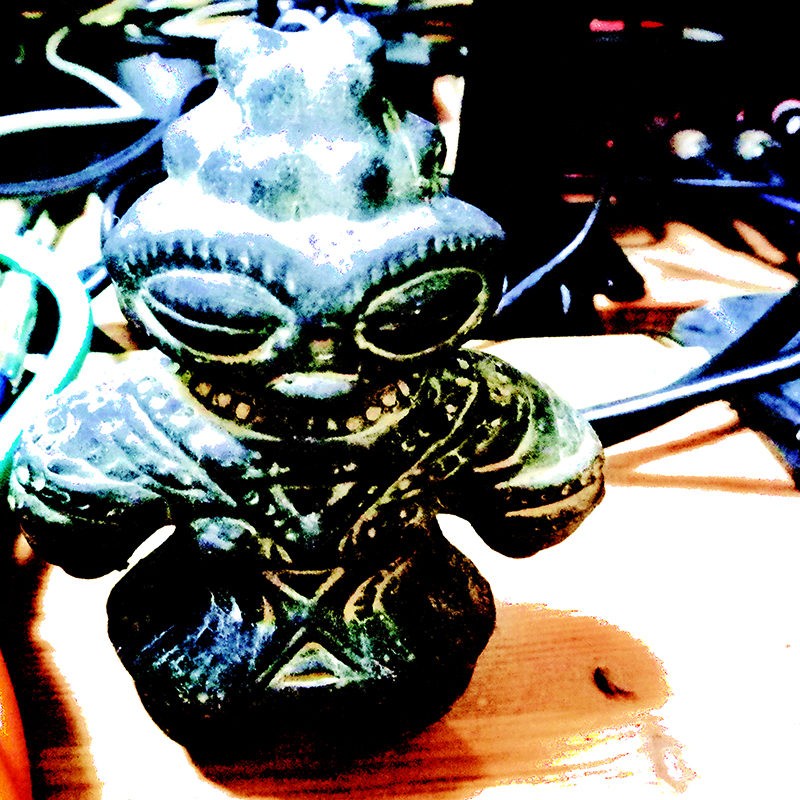
Mytyl Sheena comes from Osaka, Japan, where she has been developing her experimental approach of noise music since 2017.
I have been making some sounds/noises since 2017.
I learned piano and guitar when I was a child. I’m not good at playing them but I can use black and white keyboards and I can understand music scores.
When I started making noises, I didn’t know anything about synthesizers, other electronic instruments, or DAWs. I have read many books and websites to learn about them. Now I use Ableton Live, Presonus Studio One, some modular synthesizers, noise oscillators, experimental instruments, and guitar pedals.
I still don’t know enough about them so I keep playing them to learn about them.
You live in Osaka, can you tell us about the experimental, Modular scene in Japan?
Do you often play or collaborate with others?
I have never played or collaborated with others. I wish I could do that someday.
I’m sorry but I don’t know much about the experimental, modular scene in Japan.
I hear that there are many professional/amateur musicians who play modular synthesizers in Japan, especially in Tokyo and Osaka. I know only a few of them. Hataken-san is very famous around the world as a Japanese modular synthesizer musician. We can read his interview in the book “Patch & Tweak”.
What have you been working on lately, and do you have any upcoming releases or performances?
I’m not a professional, full-time musician.
I work on weekdays and make some noises on holidays.
I have made them all alone for about 4 years and at the end of 2021, I started to team up with Elly. She understands me very much and always gives me positive feedbacks about my works. We have some ideas so we can release some other works this year.
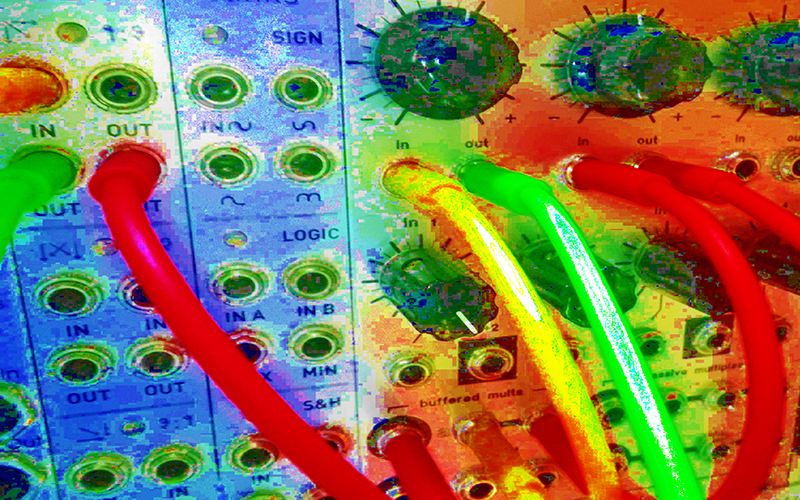
How were you first acquainted to Modular Synthesis?
When did that happen and what did you think of it at the time?
How does it marry with your other « compositional tricks »?
I heard of it in 2018. Rintaro-san had written about it:
“I thought that what makes modular synths definitely different from other synths and instruments is that they have the potential to transcend the boundaries of electronic music and can be adopted by people from any musical genre. Moreover, it is common to use the same module in completely different ways. I don’t think there are many musical instruments that can work in such a multifaceted way, other than the human body and computers.”
I was truly moved by his words, especially by the word “multifaceted”, and I have been very much interested in modular synthesis since then.
I don’t have any special “compositional tricks”. I have never learnt about composition or musical theories at a college, a school or something like this. I don’t have any knowledge of classical music either. I don’t “compose” music. I just want to “generate” some noise from the instruments I have. I use modular synthesizers and/or Ableton Live to do that (sometimes I also use field recording samples, noise oscillators, experimental instruments and guitar pedals). I try to choose multifaceted instruments when I buy new gear.
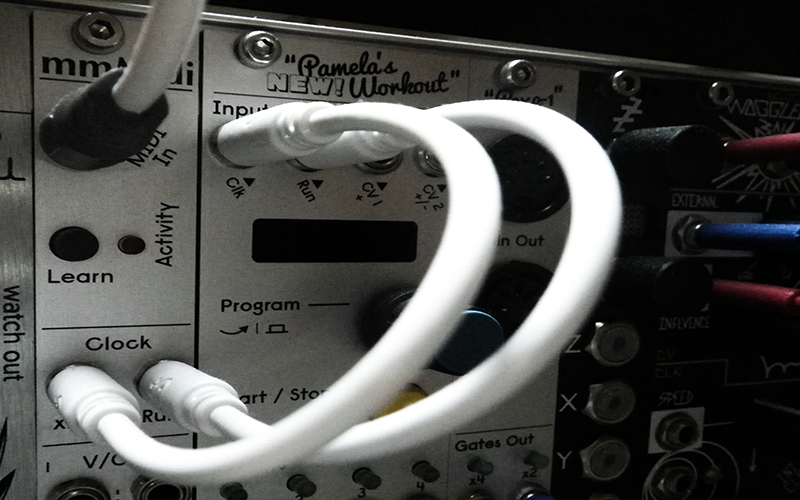
When did you buy your first system? What was your first module or system?
I bought Qu-Bit Nebulae v1 (used) in 2018 or 2019. That was my first module but I couldn’t play it at all…
I couldn’t hear any sound/noise from it. In summer of 2019, I bought Make Noise Richter Wogglebug 2014, some other modules and Tiptop Audio Happy Ending Kit.
I was using Arturia Minibrute 2, so I started patching them with it. This was my first, so much exciting experience of making noise with modular synthesizers.
How long did it take for you to become accustomed to patching your own synthesizer together out of its component parts?
Maybe it will take a long long time for me…. I always truly enjoy playing and patching my modules but I have never felt accustomed to doing it.
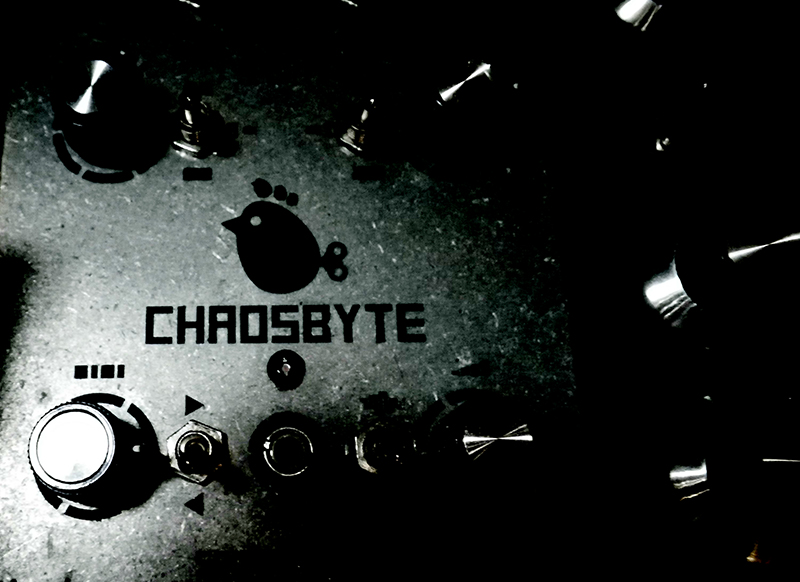
What was the effect of that discovery on your compositional process? On your existence?
Through making some noises with my modules and Ableton Live, I realized that I don’t need black and white keyboards any more. Modular synthesis lets me open my eyes to the beauty of sound itself. Yes, I know that melodies and chords are beautiful too. But I want to dive into the beauty of noise much deeper with my modules.
Quite often modularists are in need for more, their hunger for new modules is never satisfied? How do you explain that?
To tell the truth, I don’t want to explain that. Everyday I check news and websites about modular synthesis. I always look for the module I don’t have and I “should” have. Maybe that’s because I am a shopaholic.
A monster in my head keep screaming: “I NEED MORE!!”
Say, there are huge numbers of filter modules and they can make definitely different noise from the same source. That’s why I have four. That is not hunger for new modules but for new sound/noise I have never heard.
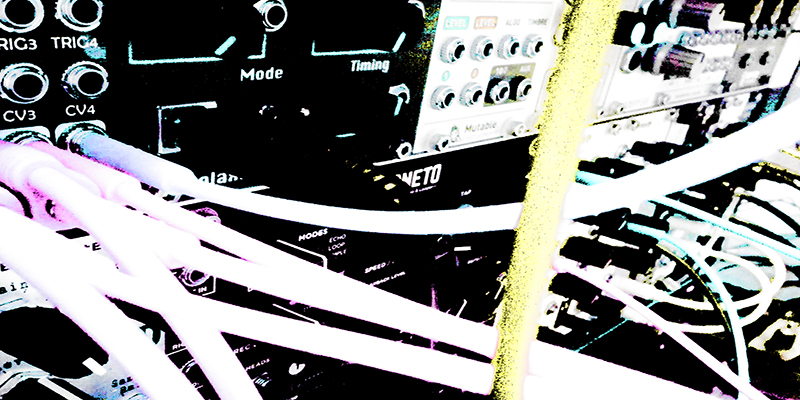
Instrument building may actually be quite compositional, defining your sonic palette, each new module enriching your vocabulary. Would you say that their choice and the way you build your systems can be an integral part of your compositional process? Or is this the other way round and you go after a new module because you want to be able to sound-design some of your ideas?
I truly agree with you. The choice of tones and timbres are integral parts of my process.
It may be the same as the choice of instruments. But every time we try to make music or sound with modular synthesizers, we can build a “new system” only with patching them. That is one of the “multifaceted” features of modular synthesizers, I think.
I like kind of weird modules, something like the products of Error Instruments. I truly love their products!
I buy a module from them on impulse and start thinking, “What can I do with this?”
I try to patch it with other modules and enjoy the noise they generate. In this case, my modules give me some ideas.
Do you prefer single-maker systems (for example, Buchla, Make Noise, Erica Synths, Roland, etc) or making your own modular synthesizer out of individual components form whatever manufacturer that match your needs?
I prefer the latter. But I have been so much interested in Buchla since I watched the movie, “i dream of wires”.
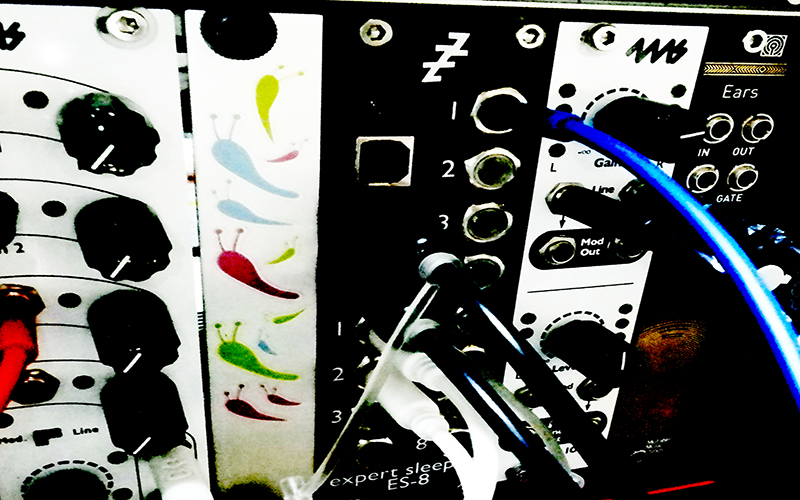
How do you compose?
First, I choose the sounds I use. For this session, I chose two, Squaresolid Chaosbyte (a noise oscillator) and Ample Percussion Cloudrum (a steel tongue drum software synthesizer). I input all sounds into my modules with Expert Sleepers ES-8 (from Ableton Live with ADAT) and 4ms Listen I/O (from other devices), and start making noise. When I start patching, I have almost no plan. For this session, I had just some ideas, distortion and feedback. I enjoy playing with my modules, usually for some hours, and record some tracks. Then I mix them with Ableton Live or Presonus Studio One. I sometimes use some effects of my DAWs before mixing and mastering.
How has your system been evolving?
I think my system has not been evolving… it’s kinda chaos. Maybe it will increase in entropy.
Do you tend to use pure modular systems, or do you bring in outside effect and devices when playing or recording?
The latter. I have only a few oscillator modules. As materials of my noises, I like to use the sounds I recorded, software synthesizers and noise oscillators. I also like to use guitar pedals.
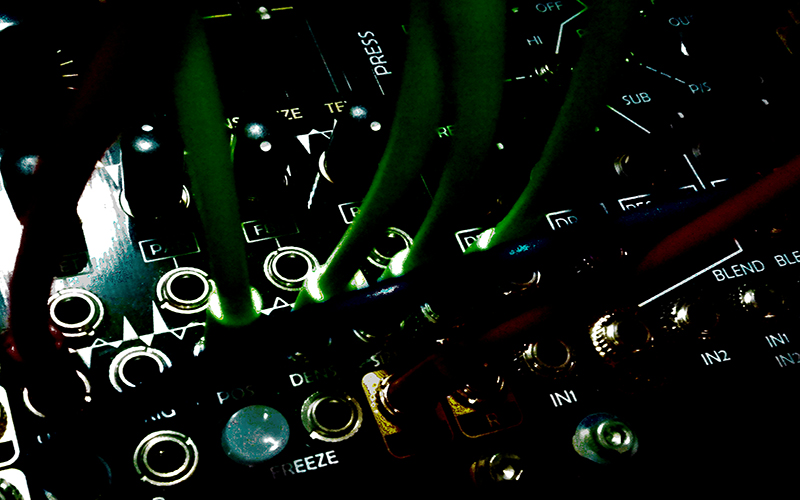
Would you please describe the system you used to create the music for us?
Can you outline how you patched and performed your Modulisme session?
As I said before, I used 2 sounds as materials. I used Instruo Lion, The Harvestman Polivoks VCF, Manhattan Analogue Discrete SVVCF, Erica Synths Fusion VCF2, Mutable Instruments Warps, Veils and Clouds, Noise Engineering Manis Iterates and Seca Ruina, WMD Geiger Counter and Strymon Magneto to change materials into this noise. I also used ALM Busy Circuit Pamela’s New Workout, Doepfer A-147-2, Make Noise Richter Wogglebug 2014, Ornament and Crime and After Later Audio Benjolin V2 as modulation sources. I have to add some effects of Ableton Live.
What do you think that can only be achieved by modular synthesis that other forms of electronic music cannot or makes harder to do?
I’m not interested in what I cannot do. I have my hands full with enlarging what I can do or making something easier to do. I have to, and I want to learn more and more.
What would be the system you are dreaming of?
My dream is to make a noise with only my brainwave and modular synthesizers.
I read a news about a lady who did it with Tonto some years ago. I was beaten to the punch!
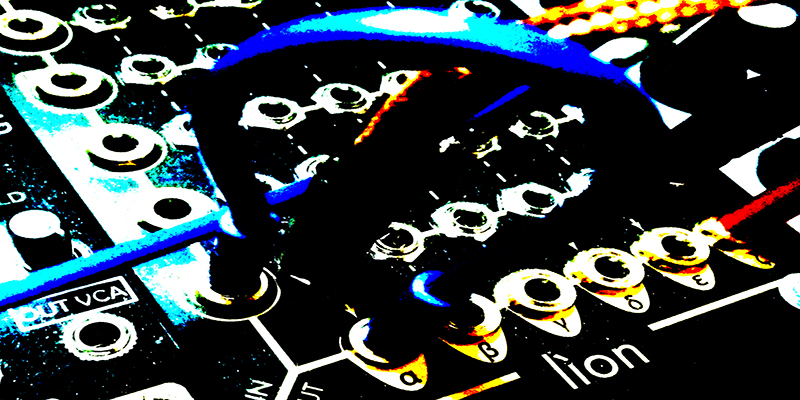
Are you feeling close to some other contemporary Modularists? Which ones? Which pioneers in Modularism influenced you and why?
I like many musicians who makes great sounds or noises. But I don’t know whether they use modular synthesizers or not. I’m just interested in what they make, not in how they make.
Oh yes, I love the sounds of Morton Subotnick and Suzanne Ciani. I know they used Buchla. But no one influence me about using modular synthesizers. If it sounds I am arrogant, I’m sorry. I just want to make noises which are beautiful and comfortable especially for me and Elly.
I can use anything to do that but I chose modular synthesizers for the reasons I said before.
Any advice you could share for those willing to start or develop their “Modulisme” ?
I’d rather want many many advice from you. But one thing I can say is that we should not be afraid of confusion. It is important and also a lot of fun to enjoy chaos. Thank you so much for giving me such a great chance, Philippe!!
https://mch.world/archives/tag/generative
